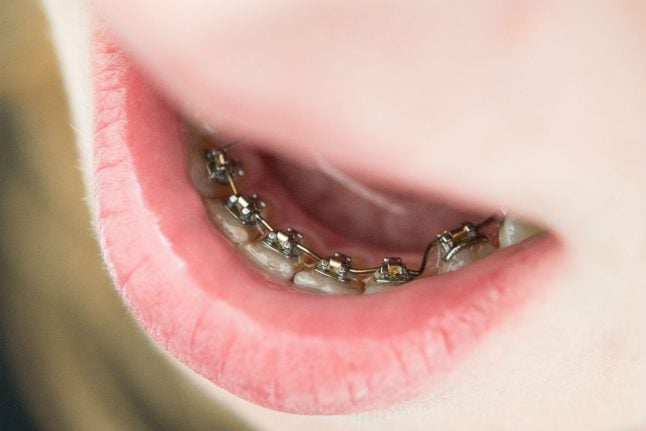The research conducted by the IGES Institute in Berlin concluded that “with regard to the diagnostic and therapeutic orthodontic measures, no conclusion can be drawn about a patient-relevant benefit.”
SEE ALSO: German healthcare – everything you need to know
In layman’s terms, the meta-study, which examined all previous studies into the health benefits of orthodontic treatments, came to the conclusion that braces and similar measures to alter tooth structure have no proven health benefits.
The report said it was “noticeable” that none of the long term studies into the benefits of braces had collected data on their impact on tooth loss, periodontitis and other secondary diseases.
While no benefits to dental health could be found, the report noted that patients believed that aesthetic benefits of straighter teeth improved their quality of life.
With German health insurers paying an estimated €1.1 billion in 2017 alone for orthodontic treatment, the conclusions could put pressure on federal authorities to reassess whether braces are a necessary health measure. If they were struck from the list of necessary treatments, insurances companies would no longer be legally obliged to pay for them.
Pushed onto the back foot by its own report, the Health Ministry said that while the study showed there was no proof that orthodontic treatment has health benefits, “it also does not rule it out”.
Health Minister Jens Spahn said on Thursday that he had “no doubts about” the necessity of orthodontic treatment.
The ministry also stated that it was not its job to rule on what is and is not a necessary health treatment. This is a duty carried out by the Federal Joint Committee, a body of health experts that includes doctors, dentists and insurers.
The ministry said it would now “discuss further research needs and recommendations for action” with insurers and medical experts.



 Please whitelist us to continue reading.
Please whitelist us to continue reading.
Member comments